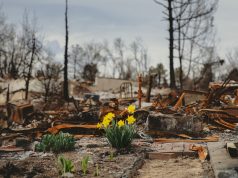
“Uncharted Waters”
by multiple authors, New York Times
I’m a little blown away by this series on water. It covers “the causes and consequences of disappearing water.” Each article boils down the notoriously jargon-filled and complex field and brings readers up to speed on the most contentious topics. Some articles, including one about water rights and about disappearing groundwater, have direct connections to Colorado. But the whole series has nation-wide relevance; I consider it a must-read. The latest article was released on Dec. 14, and I’m sure there is more in the pipeline. — Will Matuska
“Yes in Our Backyards”
by Bill McKibben, Mother Jones
When I included this in my newsletter, I pitched it as “When to NIMBY and when to YIMBY.” Because that’s what it is: the best guide I’ve yet found on whether to support or oppose development, considering all the complexities and nuances that belie that very simple question. As a journalist, I have the added burden of deciding how to balance the very real and documented negative effects of decades of NIMBYism with the deeply felt fears of local residents. McKibben does boil it down to a general rule, but I’m not going to give it to you: Read the story. — Shay Castle
“The climate crisis is pushing Washington’s prisons to the brink”
by Sarah Sax and Christopher Blackwell, High Country News and Type Investigations
Systems don’t operate in a vacuum, and this story is a great illustration of how climate change, mass incarceration and mental and physical health intersect. It’s rich with records obtained by the journalists and tells the stories of incarcerated individuals to show how the climate crisis is impacting life behind bars. The piece was produced, in part, by an incarcerated journalist, disrupting the idea that those with lived experience on an issue are too biased to report on it. — Kaylee Harter














